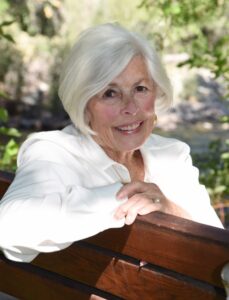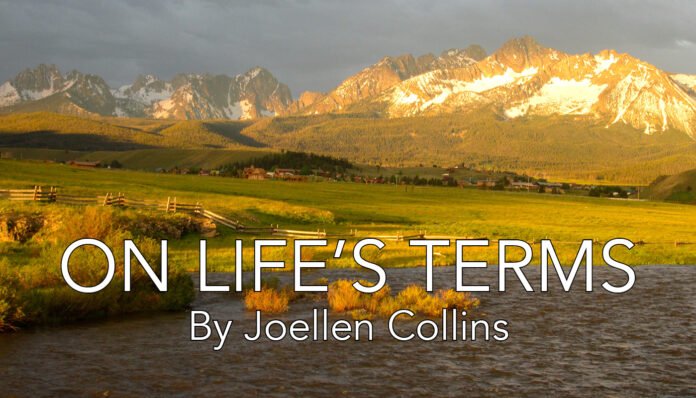BY JOELLEN COLLINS

The most recent news reports have featured yet another shooting. According to statistics, the United States has suffered this year over 600 mass murders (defined as those where four or more are dead, not including the killer).
Since we are now able, through vast communications and media access, to see, graphically, what is really happening all over the world, learning about events is almost inescapable. I can hardly bear the news of violence inspired by hatred and anger, and yet I want to be able to help my world with what knowledge I have. This holiday season, the resurgence of antisemitism and hostile protests about Islam and other religions has sparked the need for more security during Hanukkah and Christmas. Synagogues and mosques are wary of the vocal dislike and fear of Jews and Muslims.
So how can I live with my sense of helplessness and also make things better, even in a modest, trivial way?
A victim of the Nazi holocaust refused to let her fright keep her from a belief expressed in an innocent statement about the horrible war she was hiding from. Anne Frank, in the middle of World War II, near the time it ended, said, “How wonderful it is that nobody need wait a single moment before starting to improve the world.” She didn’t have many moments left in her brief life to “improve” the world.
Most of my generation thought that WWII had made the world ultimately a safer place. I was born with others who generally believed that if we tried hard enough, America would be able to remind the rest of the world how to live without fear and in safe comfort. Unfortunately, we know that violence and extremism has accelerated in hideous fashion. No one can count on the typical sanctuaries of home, school, and religious institutions anymore.
After the 1994 “Tutsi” genocide in Rwanda, which resulted in an estimated one million deaths, the International Criminal Tribunal was established to discover and try the many people who had murdered neighbors and family members. The method, simplified here, was to ensure that if the perpetrators of these murders admitted their guilt, they were allowed freedom only if they would return to their original neighborhoods and build positive lives. What a challenging prospect! I once visited Rwanda and was deeply moved at its genocide memorial, where the corpses of great numbers of innocent and often unidentified people lay just beneath the massive slab where one walks to the museum.
The thought in this tribunal was that one must fix close relationships. Perhaps the only way that we can build a safer society here and in the rest of the world is to individually take this moment as Anne wished, to settle one’s hateful instincts and to cherish one’s family, neighbors, and encounters wherever they may be. Hopefully, then, we will live in a more civil world. This requires a tolerance of varied spiritual and societal beliefs in each of our lives.
That is not a trivial pursuit.



